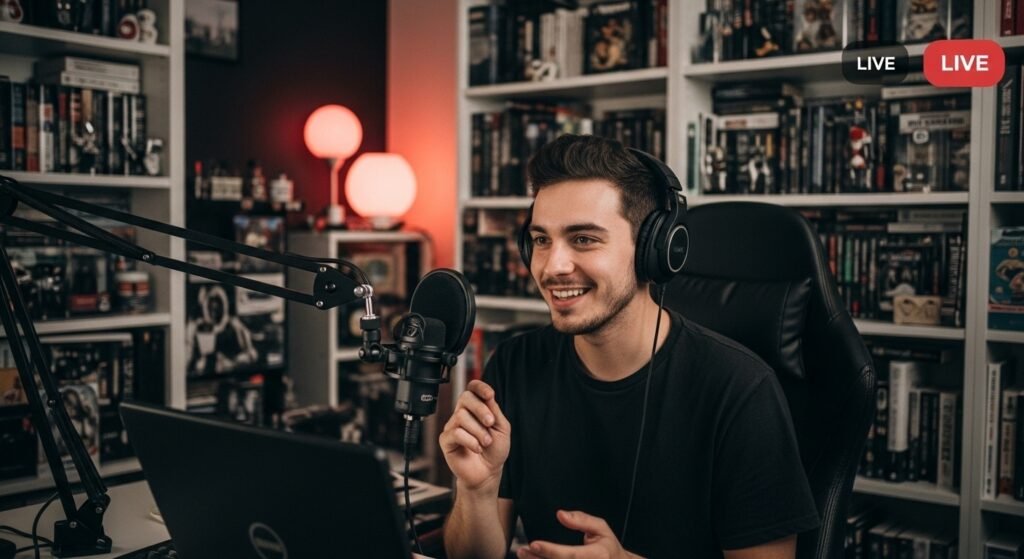YouTube’s policy on spam and deceptive practices is designed to protect users from content that is intentionally misleading or harmful. This means they prohibit content that tries to trick people in various ways.
If you find content that violates this policy, report it. Instructions for reporting violations of their Community Guidelines are available here. If you’ve found a few videos or comments that you would like to report, you can choose to report the channel.

What these policies mean for you
If you’re posting content
Don’t post content on YouTube if it fits any of the descriptions noted below.
Deceptive and Spam Content on YouTube
YouTube’s policies are designed to prevent content that is misleading or harmful to viewers. Here’s a breakdown of the specific types of deceptive behavior that are not allowed:
Video and Comments Spam
- Deceptive Links: This is when a video or comment promises one thing but then directs viewers to a different site for a negative purpose. This includes tricking people into leaving YouTube to visit a site that spreads malware, collects personal information, or promotes “get rich quick” schemes.
- Excessive or Repetitive Posting: Posting a large amount of untargeted, duplicate, or repetitive content is considered spam. This also includes using bots to post comments.
Misleading Practices
- Misleading Thumbnails and Metadata: Using titles, descriptions, or thumbnails that deliberately trick people into thinking the content is something it isn’t.
- Scams: Content that promotes fraudulent schemes like cash giveaways, pyramid schemes, or other offers that promise quick wealth.
- Incentive Spam: This includes any content that sells or promotes ways to artificially boost engagement metrics like views, likes, or subscribers. For example, “Sub4Sub” content, where you offer to subscribe to another channel just so they will subscribe to yours, is not allowed because its only purpose is to inflate a channel’s metrics.
Live Stream Abuse
- Unauthorized Content: Streaming someone else’s content without permission, especially if the creator has received multiple warnings, is a violation. It’s the channel owner’s responsibility to actively monitor their live streams and address any issues right away.
This policy applies to videos, video descriptions, comments, live streams, and any other YouTube product or feature. Keep in mind that this isn’t a complete list. Please note these policies also apply to external links in your content. This can include clickable URLs, verbally directing users to other sites in video, as well as other forms.
Note: You’re allowed to encourage viewers to subscribe, hit the like button, share, or leave a comment.

Video Spam
The following types of content are not allowed on YouTube. Keep in mind this list isn’t a complete list.
- Content that promises viewers they’ll watch something but instead directs them off site to view.
- Posting the same content repeatedly across one or more channels.
- Massively uploading content that you scraped from other creators.
- Trying to get viewers to install harmful software, or directing them to sites that might compromise their privacy.
- Autogenerated content that computers post without regard for quality or viewer experience.
- Promising money, products, software, or gaming perks for free if viewers install software, download an app, or perform other tasks.
- Massively posting affiliate content in dedicated accounts.
Misleading metadata or thumbnails
The following types of content are not allowed on YouTube. Keep in mind this list isn’t a complete list.
- A thumbnail with a picture of a popular celebrity that has nothing to do with the content.
- Using the title, thumbnails, or description to trick users into believing the content is something it is not. For example, when there’s a serious risk of egregious real world harm.
Scams
The following types of content are not allowed on YouTube. Keep in mind this list isn’t a complete list.
- Making exaggerated promises, such as claims that viewers can get rich fast or that a miracle treatment can cure chronic illnesses such as cancer.
- Promoting cash gifting or other pyramid schemes.
- Accounts dedicated to cash gifting schemes.
- Videos that promise “You’ll make $50,000 tomorrow with this plan!”
Incentivization Spam
The following types of content are not allowed on YouTube. Keep in mind this list isn’t a complete list.
- Videos where the purpose is to encourage viewers to subscribe.
- “Subs 4 Subs” videos.
- Videos that offer “likes” for sale.
- A video that offers to give the channel to the 100,000th subscriber without any other content.
Comments Spam
The following types of content are not allowed on YouTube. Keep in mind this list isn’t a complete list.
- Comments about surveys or giveaways that promote pyramid schemes.
- “Pay Per Click” referral links in comments.
- Comments that falsely claim to offer full video content. This type of content could be:
- Movies
- TV shows
- Concerts
- Posting links to harmful software or phishing site in comments: “omg just got tons of B∪cks from here! – [xyz phishing site].com”
- Comments with links to counterfeit stores.
- “Hey, check out my channel/video here!” when the channel/video has nothing to do with the video it was posted in.
- Posting the same comment repeatedly with a link to your channel.
Live Stream Abuse
The following types of content are not allowed on YouTube. Keep in mind this list isn’t a complete list.
- Using your phone to stream a television show.
- Using 3rd party software to livestream songs from an album.
Remember these are just some examples, and don’t post content if you think it might violate this policy.
What happens if content violates this policy
If your content breaks this rule, they’ll take it down and send you an email notification.
For your first violation of our Community Guidelines, you’ll probably get a warning without any penalty to your channel. After that, YouTube may issue a strike. If you get three strikes in 90 days, your channel will be permanently removed. You can find more details about our strikes system here.
YouTube might also terminate your channel or account for repeated violations of our Community Guidelines or Terms of Service. In cases of severe abuse or if a channel’s main purpose is to break a policy, They may terminate it after a single violation. For more information on channel terminations, click here.


No responses yet